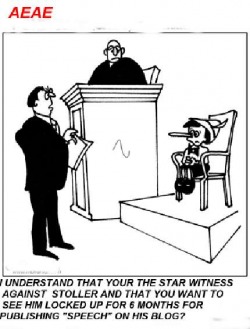
The nature of the case before the Illinois Appeals court was a citation to discover assets. The opposing counsel, Robert Tepper, in an attempt to collect a debt, filed a false lien against a piece of property, in which he knew or should have known that the creditor had no interest according to the brief. Mr. Tepper is alleged to have falsely swore under oath that he had a valid lien on a piece of property. As a result of Mr. Tepper’s false swearing on a lien, he was entitled to a be charged in an indirect criminal contempt proceeding since his false swearing was outside the purview of the Court.
Whether the Cook County Rules of Civil Procedure provide specific instructions on how to file an indirect criminal contempt petition to be filed in Cook County?
The Appellant had filed an indirect criminal contempt petition in front of Judge Kathy Flanigan, who was familiar with a procedure which gives a party leave to file a petition on the 10th floor of the Daley Center in the Criminal Division in order to obtain a separate filing number.
On the other hand, Judge Tolmaire acknowledged in open court that he was unfamiliar with any indirect criminal contempt proceedings, and summarily denied the Appellant leave to file an indirect criminal contempt petition in the criminal division in order to obtain a separate filing number.
In view of the confusion among Judges in the Daley Center, it is important for this Court to establish guidelines and procedures for a party to obtain leave to file a petition for adjudication of indirect criminal contempt on the 10th floor of the Daley Center.
Individual parties, and pro se parties, should be allowed to bring indirect criminal contempt charges when lawyers, abusers, infringe on a court order and/or engage in any other contumacious behavior outside of the purview of the court.
The private right to prosecute gives teeth to court orders and/or to prosecution of contumacious conduct outside the purview of the court. Victims should be able to file the paperwork and argue at a hearing before a judge that could change a tormentor. Victims should not have to convince a busy prosecutor to have to add to his or her workload. Indirect criminal contempt actions should be able to be brought in the name of the victim.
There is a tradition of private prosecutions, particularly for criminal contempt. There has never been an established common law requirement, let alone a Constitutional requirement, that a criminal or an indirect criminal contempt proceeding be brought in the name of the sovereign.
A victim cannot rely on the police or prosecutors to bring these actions because the state does not have the necessary resources to enforce every court order issued or to prosecute every individual who is guilty of contumacious conduct.
Leo Stoller is a legal scholar and Appelate Expert [email protected]
 RSS Feed
RSS Feed
